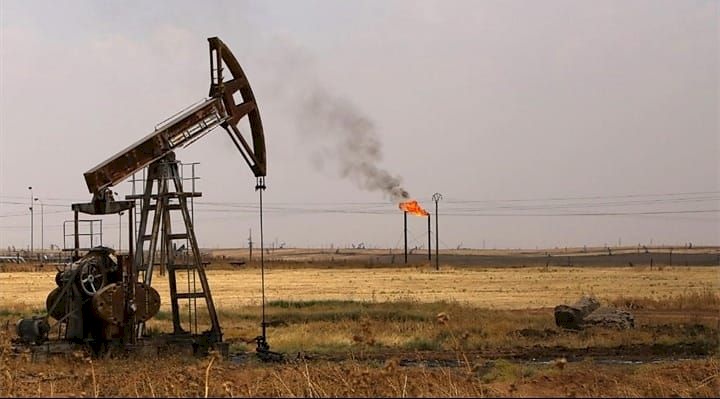
Oil Heads for Biggest Weekly Gains Since June After US Sanctions on Russia
SadaNews Economy - Oil is heading towards achieving its biggest weekly gains since June after US sanctions on major Russian companies shifted market balances, raising fears of supply disruptions and increasing demand for alternative crude supplies.
Brent crude fell on Friday to nearly $65 a barrel, but remained up about 7% for the week, while West Texas Intermediate crude dropped below $62.
It is expected that Russian crude flows to India, one of the largest buyers, will decline following the sanctions imposed on Rosneft and Lukoil, while the repercussions on China's purchases remain unclear.
US President Donald Trump plans to raise the issue of China's purchase of Russian oil during his meeting with Chinese President Xi Jinping next week.
Russia may seek to persuade Beijing to increase its imports if India withdraws from trade, but the Chinese economy, the second-largest in the world, is unlikely to absorb the entire surplus of Russian crude.
The US measures come at a time when global supplies are experiencing a noticeable increase, while Russia has extensive experience in circumventing sanctions imposed due to its war in Ukraine. The Kuwaiti Oil Minister stated that OPEC is prepared to increase production if necessary, while also warning of a potential rise in prices.
A Kremlin official indicated that Russia expects a hit to its budget but will resort to its network of traders and shadow carriers to mitigate the financial impact of the sanctions. Rosneft, led by Igor Sechin, a close ally of President Vladimir Putin, and Lukoil are the two largest oil-producing companies in the country.
Robert Rennie, head of commodity and carbon research at Westpac Bank, stated, "The critical factor in the coming weeks is what happens in shipping activity data; if we notice a sudden halt or sharp slowdown in Russian oil exports, we could see a new spike in prices."
For its part, the European Union has increased pressure on the Kremlin through a new sanctions package targeting Russian energy infrastructure, amid repeated Ukrainian attacks on its refineries, pipelines, and export ports. Kyiv announced on Thursday an attack targeting a Rosneft facility.
Trump had previously refrained from imposing sanctions on Russia, but the lack of progress in the Ukrainian war prompted a radical change in the Western policy, which previously aimed to curb Kremlin revenues through a price cap on Russian oil, to avoid major supply disruptions or sharp price rises.
This month, the price premium between near-term and further-out Brent crude futures, known as the spot premium differential, has diminished due to indications of a potential global supply surplus, but it widened significantly in the backwardation structure after the sanctions were announced.

الذهب يتراجع بعد بيانات أميركية قوية أربكت رهانات خفض الفائدة

In Numbers.. Can the "Digital Euro" Save Europe from the Dominance of American "Visa" and...

$449 million in revenues from the Suez Canal since the beginning of the current year

Gold Holds Above $5,000.. Silver Nears $82

Venezuela Sends First Oil Shipment to Israel After Years of Disruption

Oil Maintains Gains Supported by Tensions in the Middle East

Macron: It is Time for Europe to Find a Common Borrowing Mechanism and Challenge the Dolla...
